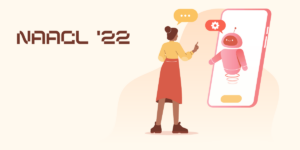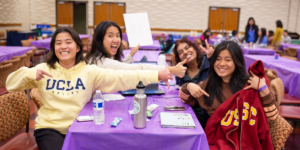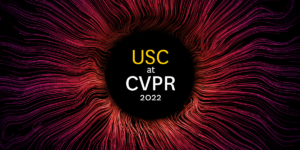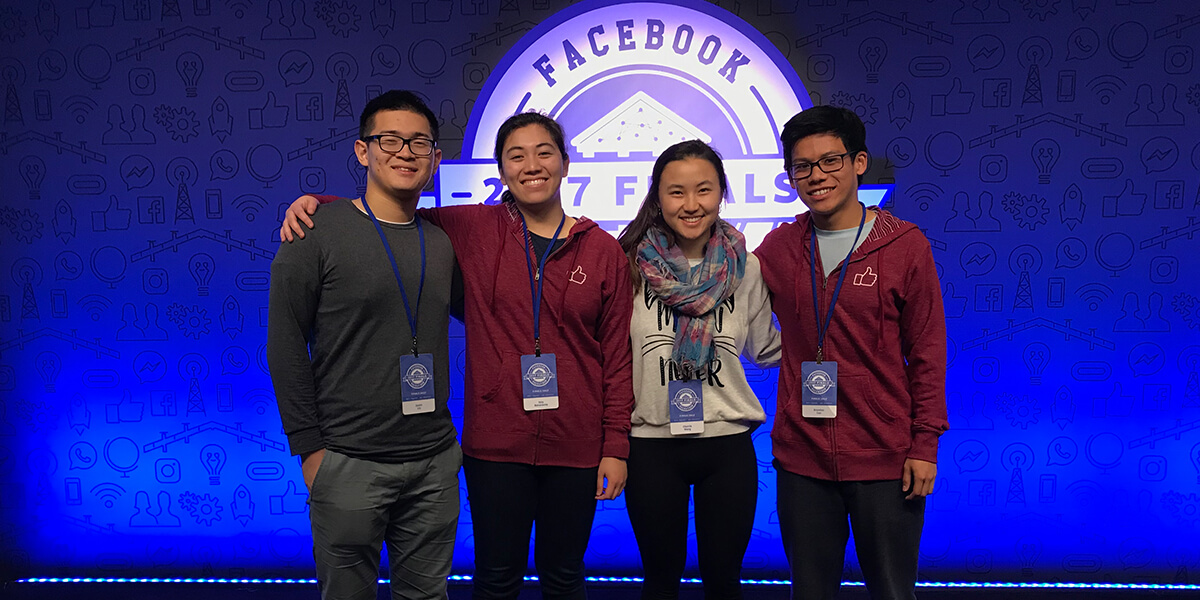
A team of four USC computer science students created a prize-winning immersive VR tool for unconscious bias training. (Left – right) Jason Lin, Izzy Benavente, Cherrie Wang and Brandon Cen. Photo/Facebook Global Hackathon.
A team of four USC computer science students and alumni has won third prize at the 2017 Facebook Global Hackathon by creating a virtual reality (VR) tool designed to stamp out gender bias in the workplace. During the 24-hour hackathon, Team Artemis developed an app, called Cue, which aims to unearth hidden prejudices by plunging users into a scenario-based, immersive VR environment.
“We wanted to tackle the issue of workplace sexism and discrimination by building a VR simulation tool that combats traditionally dry, uninteresting compliance training,” says team member Cherrie Wang, a senior computer science student.
Hearing top Facebook executives really recognize the importance of moving bias training to virtual reality was really encouraging.Cherrie Wang
In addition to Wang, team members were senior computer science student Brandon Cen and recent computer science graduates Izzy Benavente (’17) and Jason Lin (‘17). The competition, which took place in late November at Facebook’s Menlo Park, Calif., headquarters featured 16 top teams from seven countries.
Team Artemis earned a spot to compete in the finals after winning the Facebook Choice award at Stanford’s premier hackathon, TreeHacks, in February 2017, with an Alexa-based fitness and meal-tracking app. The app also won Best Voice User Experience Using Amazon Alexa and Best Use of Data Visualization.
Unearthing unconscious bias
In recent years many companies, especially tech companies, have invested resources into unconscious bias training to reduce the kinds of bias that lead to gender and racial imbalance. But studies examining decades’ worth of corporate diversity training sessions have found that in many cases, the training is ineffective.
“It’s usually an hour-long online session where you click through some slides,” says Wang. “We were determined to make it a more engaging and immersive experience.”
In one of the app’s three interactive scenarios, developed for Google Cardboard headsets, a Team Artemis member in the virtual reality space asks the user: “My friend Sam wants to switch teams; do you have any suggestions?”
“Many people will assume that Sam is a male, but of course the name could also apply to a female engineer,” says Wang.
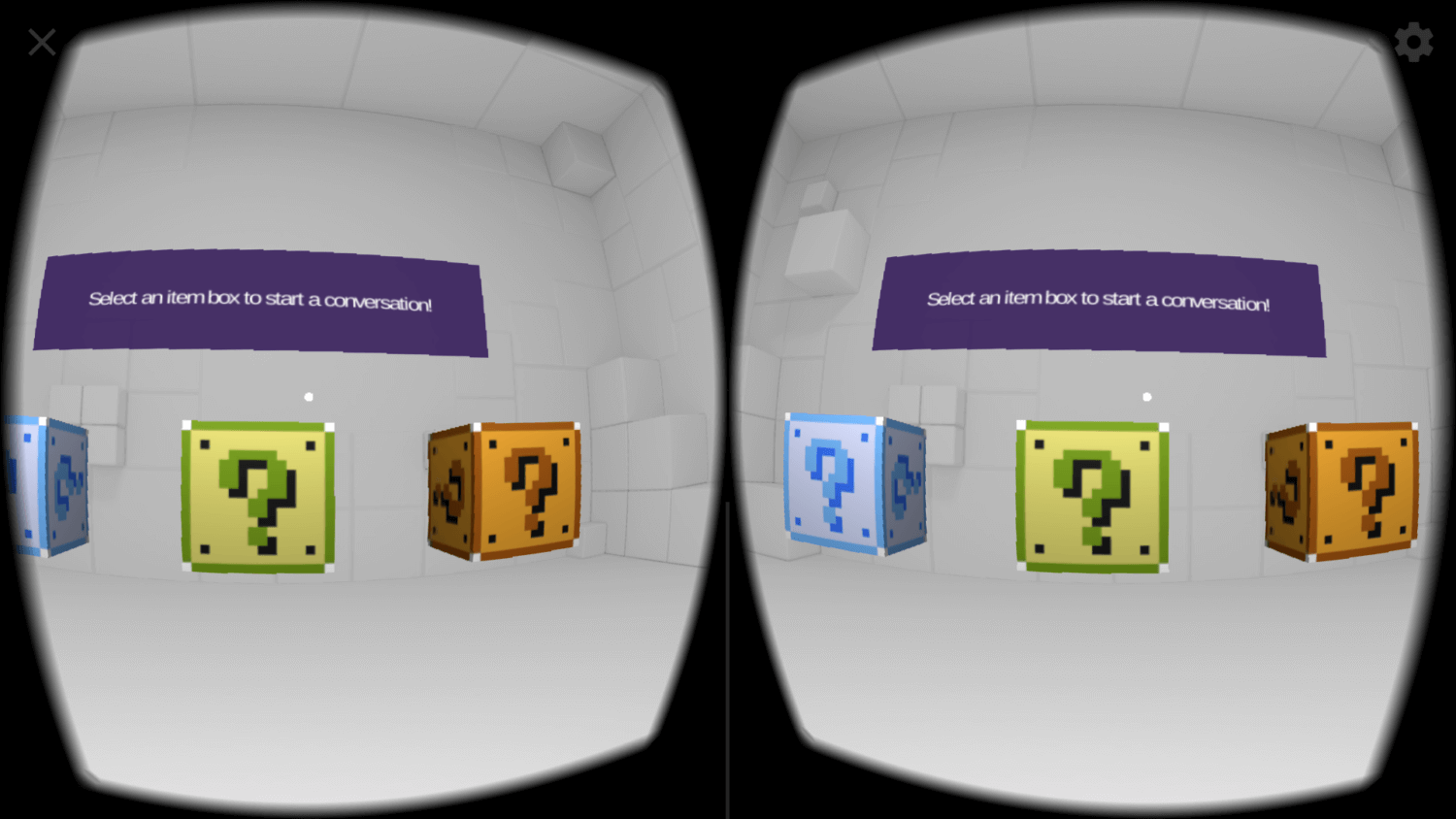
Start screen for unconscious bias training VR hack, Cue, that targets hidden prejudices in speech.
In this scenario, the app uses IBM Watson’s speech-to-text API to identify and highlight specific gender pronouns, allowing users confront hidden biases that could be lurking in their language.
During the final round of the hackathon, the team presented their creation to a judging panel of tech luminaries, including Oculus VR founder Michael Antonov, and won third prize: $2,500 in cash and an Oculus Rift developer kit for each team member.
All four team members have a busy year ahead. Wang and Cen have already secured full-time positions at Google after graduation this spring; Benavente is working as a UI engineer at Blind Squirrel Games; and Lin is pursuing a master’s degree in machine learning and artificial intelligence at Georgia Tech.
Nevertheless, the team plans to continue working on expanding the app in the future, including developing additional scenarios aimed at curbing a variety of hidden biases, and integrating machine learning for “sentiment analysis” to determine whether positive or negative feelings are triggered by each scenario.
“Hearing top Facebook executives really recognize the importance of moving bias training to virtual reality was really encouraging,” says Wang.
“We were very proud of taking that idea from concept to working model in such a short time frame, and we’re really excited to see how we can take this idea forward.”
Published on January 8th, 2018
Last updated on April 8th, 2021





